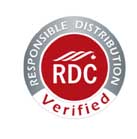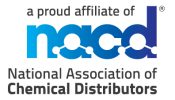Best Practices, Chemical Transportation, Uncategorized
Heat Season: Stress-Free Solutions from DSN
Brisk winds and falling autumn leaves remind us that months of shorter days, longer nights – and much colder temperatures – lie ahead. Here at DSN, it’s also the time when we begin to review the challenges of “Heat Season” with our customers to ensure that your temperature-sensitive freight needs…
Read MoreBest Practices, Hazmat Transportation
Are you in Compliance with Transport Canada TDG regulations?
According to Statistics Canada, There were 334 incidents involving dangerous goods that required a report to Transport Canada in 2015. (statcan.gc.ca/daily-quotidien/170203/dq170203c-eng.pdf). Over two-thirds (69.8%) of the incidents occurred in facilities such as terminals or warehouses, while road incidents accounted for just over one-quarter (26.3%). The objective of the Transportation of…
Read MoreBest Practices, Chemical Transportation
Entrepreneurial Business Life-Cycle
As demonstrated by the experience of most successful companies, entrepreneurs succeed in building businesses around a superior skill set and special passion for a specific area that they know best. This special knowledge and expertise in that business area position the enterprise on solid grounds for growth and success, nourished…
Read MoreBest Practices, Chemical Transportation
New Reporting Requirements for Dangerous Goods Incidents for Road Transport
June 1, 2016 Transport Canada published new rules for reporting dangerous goods incidents. They are fairly complicated detailing when a report needs to be filed, who it needs to be filed with, as well as, an extensive list of information that needs to be included. Overview We’ll do our best…
Read MoreBest Practices, Shipping to Canada
What is a Transportation Brokers Bond and Why You Should Know
All transportation brokers are required to have a bond of $75,000 if they do business between Canada and the US or within the US. This is an FMCSA requirement listed in the Federal Register. Previously, only a $10,000 bond was required. Many applaud this increase as a step forward in…
Read MoreBest Practices, Chemical Transportation, Hazmat Transportation
Hazmat Training & Information Resources
Many of our clients engage in transportation of dangerous goods. Here’s a handy list of training and information resources to help you.
Read MoreBest Practices, Chemical Transportation, Hazmat Transportation, New FMCSA Regulations
Special Hours of Service Exemption Granted to Hazmat Drivers
FMCSA granted hazmat driver’s special request to exempt them from rest break rules while attending hazmat shipments. At issue was the duty of hazmat drivers to attend the shipments during rest breaks for security reasons. Because attending the shipment was technically an on-duty activity, hazmat drivers could properly register rest…
Read MoreBest Practices, Chemical Transportation, Hazmat Transportation
The Value of Expertise
Our World is becoming increasingly complex. While the internet provides a wealth of free information on almost any subject, there is still a cost; the most valuable commodity; time. True experts are valuable. They save you time and money. The World of transportation and logistics is no different. This article…
Read MoreBest Practices, Shipping to Canada
How does cargo liability work for Transborder Shipments?
Cargo liability rules come into play when cargo is lost or damaged. There are times when cargo that is to be transported from one point to another can arrive damaged at its destination point. It then must be determined if the goods got damaged during carriage or, the carrier got…
Read MoreBest Practices, Chemical Transportation, Hazmat Transportation, Industry Information, New DOT Regulations, New FMCSA Regulations
Excepted Quantities Exemption Update in TDG Regulations
On December 31, 2014 Transport Canada amended the Transportation of Dangerous Goods Regulations to include an exemption for “Excepted Quantities”. This article is a summary of the recent update and explains everything you need to know about Excepted Quantities. What You Need to Know About Excepted Quantities: Where to find…
Read More















